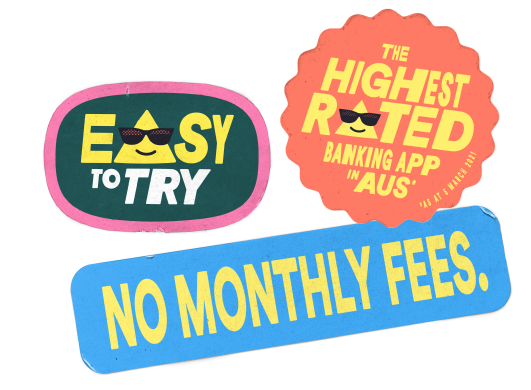What is Lenders Mortgage Insurance? (LMI)
Home loans come with all kinds of acronyms: let’s take the mystery out of LMI.
There are risks in buying property. Not because you’re not incredible – you’ve already proved it, by making your savings a priority and pulling together that huge deposit. But, just like almost every Australian who’s buying property, you’ve only got part of the sale price in your pocket. Your lender pays the balance – at their own risk.
To protect them against potential losses, lenders sometimes require borrowers to buy Lenders Mortgage Insurance, or LMI. But what does that mean for you?
Remember, any advice provided on this website is of a general nature only and does not take into account your personal needs, objectives and financial circumstances. You should consider whether it is appropriate for your situation.
What is LMI for?
The market is always changing. The value of your property might go up or down. The cost of living might increase, with higher bills and food prices. And sometimes, through no fault of your own, it can become tricky to meet your repayments.
Truly worst case scenarios might not happen often, but we’re not here to sugarcoat money stuff: they do sometimes happen. Say a few bad things happen at once: you can’t service your loan, the property has to be sold, but also property prices have gone down since you bought so the sale price is less than you borrowed in the first place. LMI covers the lender. They won’t be out of pocket because if you still owe more than the sale price, the insurer pays the gap.
Who needs LMI?
If you’re contributing less than 20% of the purchase price, you’ll probably be required to pay for LMI. It’s a one-off fee paid to the insurer (not your lender) when you settle. Most lenders will bundle it into your loan, so instead of paying a big one time fee you can smooth out the payments.
If you’ve saved a larger deposit, you more than likely won’t need to pay for LMI.
How much does it cost?
The cost of your LMI depends on your lender, how much you’re borrowing, and the size of your deposit. Just like you’d pay more to insure a shiny new e-bike than the rust bucket you got in Year Eight, it will (for example) cost more to insure a loan of $500K than one of $200K. You’ll be able to find out the exact figure as you progress through the mortgage process.
Be sure you understand how it changes your repayments. You may find your borrowing capacity is a bit lower than you expected once you factor it in.
Can I avoid paying LMI?
The best way to avoid paying for LMI is to keep saving. If you can hit the magic number, you’ll probably be exempt.
But that may not be the path you choose. LMI is pretty crucial in helping people buy homes, when they have a smaller deposit. If for example you think it’s likely that property prices where you want to live will rise faster than the cost of LMI – or if you need to buy for life reasons – it might seem worth paying. It’s because of LMI that you could be going live on Insta with your new keys sooner*.
If you think that prices will go down or stay the same, and you’re in a position to wait life-wise you might decide to save on the LMI. But we’re only here to give you info, not advice.
And, as always, it’s a good idea to seek independent advice to make sure you understand your options and their implications.
What other acronyms do I need to know?
Ooh, have we told you about LVR yet? Step right this way …
*although please just the keyring – keys can be copied from photos and video, which is bad news for your personal security. Look we’re a bank, we have to be boring about stuff like LMI and not getting robbed of your personal info, not sorry.
Up Home learning centre.
Buying a home is one of the biggest learning curves life can throw at you. Let's get you sorted out with how to prep your finances, get some sweet subsidies, and master home buying buzzwords.
Learn More About Home LoansThe Finer Details
Home loan words can be… a lot. Check out our plain English guide if anything on this page could use a little explanation.
